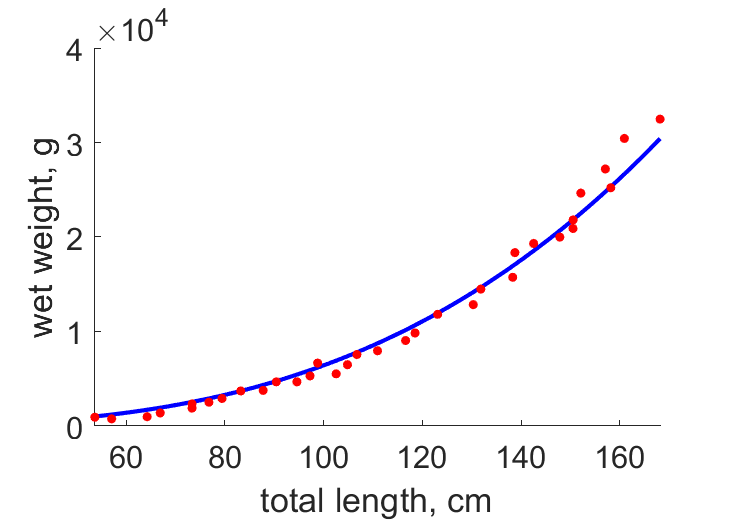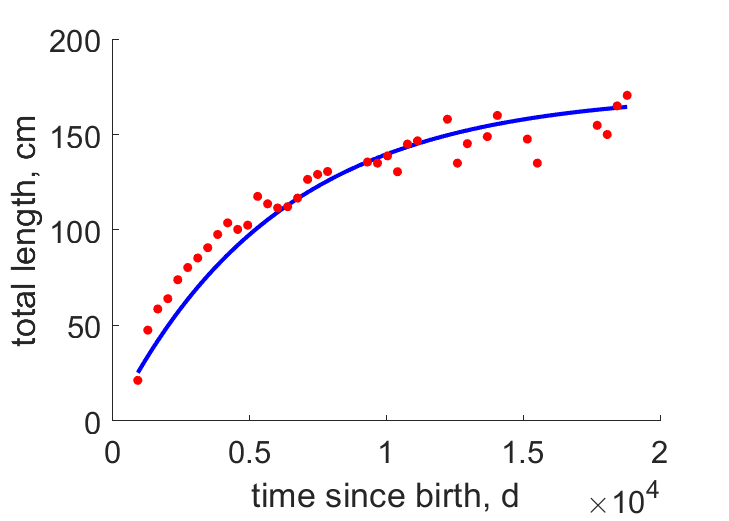Predictions & Data for this entry
| Model: std | climate: Dfa, Dfb | migrate: Mp | phylum: |
| COMPLETE = 2.5 | ecozone: THn | food: biCi, biCvf | class: |
| MRE = 0.074 | habitat: 0iFr | gender: D | order: |
| SMSE = 0.010 | embryo: Fg | reprod: O | family: |
Zero-variate data
| Data | Observed | Predicted | (RE) | Unit | Description | Reference |
|---|---|---|---|---|---|---|
| ab | 11 | 27.1 | (1.464) | d | age at birth | Wiki |
| tp | 8942 | 6083 | (0.3197) | d | time since birth at puberty | Haug1969 |
| tpm | 6935 | 6939 | (0.0006015) | d | time since birth at puberty for males | Haug1969 |
| am | 5.475e+04 | 5.477e+04 | (0.0003116) | d | life span | Wiki |
| Lp | 120 | 135 | (0.125) | cm | total length at puberty | fishbase |
| Li | 274 | 247.3 | (0.0975) | cm | ultimate total length | fishbase |
| Wwb | 0.0108 | 0.01105 | (0.02317) | g | wet weight birth | BrucMill2006 |
| R170 | 416 | 407.2 | (0.02124) | #/d | reprod rate at TL 170.5 cm | Haug1969 |
| R135 | 80.45 | 92.06 | (0.1444) | #/d | reprod rate at TL 135 cm | Haug1969 |
Uni- and bivariate data
| Data | Figure | Independent variable | Dependent variable | (RE) | Reference |
|---|---|---|---|---|---|
| LWw |  | total length | wet weight | (0.07324) | Haug1969 |
| tL |  | time since birth | total length | (0.0748) | Haug1969 |
Pseudo-data at Tref = 20°C
| Data | Generalised animal | Acipenser fulvescens | Unit | Description |
|---|---|---|---|---|
| v | 0.02 | 0.02764 | cm/d | energy conductance |
| p_M | 18 | 15 | J/d.cm^3 | vol-spec som maint |
| k_J | 0.002 | 0.002 | 1/d | maturity maint rate coefficient |
| k | 0.3 | 0.6939 | - | maintenance ratio |
| kap | 0.8 | 0.5678 | - | allocation fraction to soma |
| kap_G | 0.8 | 0.8039 | - | growth efficiency |
| kap_R | 0.95 | 0.95 | - | reproduction efficiency |
Discussion
- Males are supposed to differ from females by E_Hp only; they are somewhat smaller than females, but data is lacking
Bibliography